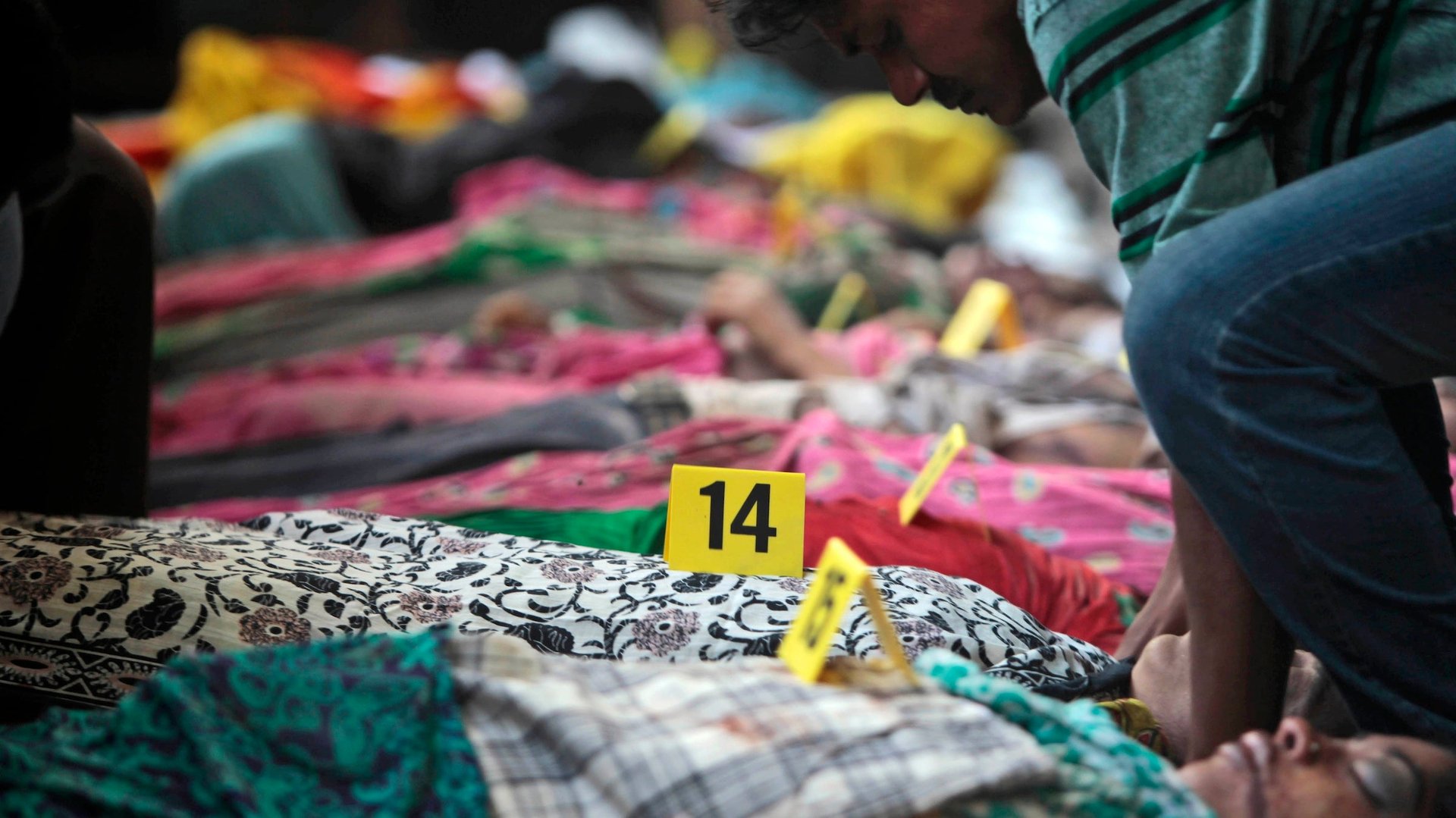Here are the Western retailers that source clothes from the Bangladeshi factories where over 200 workers died
The eight-story factory building just outside Dhaka that collapsed yesterday has now killed at least 228 workers, reports Reuters—most of them women. The death toll has climbed as an unknown number of people remain trapped in the rubble.


The eight-story factory building just outside Dhaka that collapsed yesterday has now killed at least 228 workers, reports Reuters—most of them women. The death toll has climbed as an unknown number of people remain trapped in the rubble.
The collapse didn’t come out of nowhere, though. Cracks in the building, called Rana Plaza, on Tuesday had prompted the Bangladesh police to order evacuation, and while employees were reluctant to enter on Wednesday, factory managers declared it to be safe—despite the fact that a bank in the buliding sent its staff home.
It’s not just the managers that made terrible judgment calls. The Business Social Compliance Initiative (BSCI), a labor rights and safety group, cleared operations at two of the five factories in the building, New Wave Style and Phantom Apparels—even though inspectors didn’t happen to visit Rana Plaza (paywall). (The other three Rana Plaza factories are Phantom Tac, Ether Tex and New Wave Bottoms.)
“We check the working conditions at the factory, but we are not construction engineers. We cannot be held responsible for how they build their factories,” Ole Koch, director of Danish retailer PWT, which owns a clothing line called Texman, told Reuters. PWT had bought from a Rana Plaza factory for seven years.
Here are the other companies that sourced from the Rana Plaza factories, based on news reports and workers’ rights groups, including one with access to documents and labels found at the factory, which shared its list with Quartz:
Wal-Mart, USA
Something similar happened last November, when another Dhaka garment factory that lacked emergency exits caught fire, trapping and killing 112. It later emerged that Wal-Mart continued to source from that factory, despite worrying breaches of fire-safety standards in a 2011 inspection (paywall).
As it happens, Ether Tex says Wal-Mart was one of its contractors; Wal-Mart is investigating the possibility. Few others on the list have admitted that they source from the collapsed factories. Among them are Primark, one of the UK’s major budget retailers, Bonmarche and Loblaws.
Mango says though it had sourced 25,000 items from Phantom from January to March, the factory wasn’t an official supplier. Matalan says it no longer sources from New Wave.
Meanwhile, Benetton has so far denied sourcing from a Rana Plaza factory, as has Carrefour.
The number of high-profile multinationals involved is enough to suggest that a good few corporate ethical trade teams, like those of PWT and the BSCI, gave Rana Plaza a clean bill of health. Those investigations, and the business they encouraged, helped Bangladesh bring in $24 billion in garment exports last year, winning it a spot just behind China as the world’s second-biggest apparel exporter.
The consequences of their oversights will knock Bangladesh back down the exporter list as firms pull orders, lest they risk being associated with Rana Plaza and Bangladesh’s gruesome disregard for worker wellbeing.
A pat on the back for them. But meanwhile, the country’s garment factories are likely to replace the multinationals’ business with even cheaper—and less image-conscious—retailers in more advanced emerging markets. And the life of the Bangladeshi garment worker won’t change much at all.